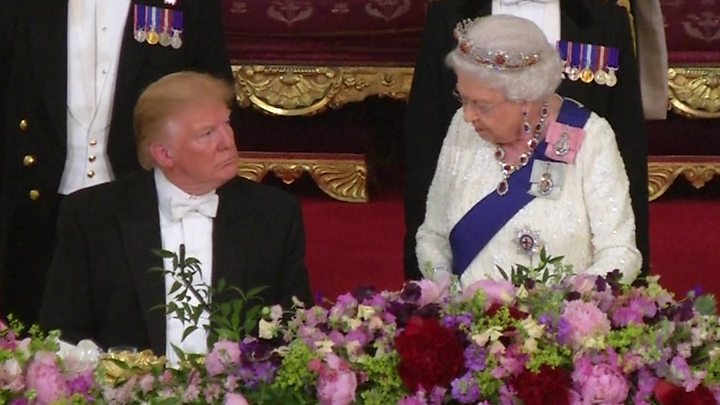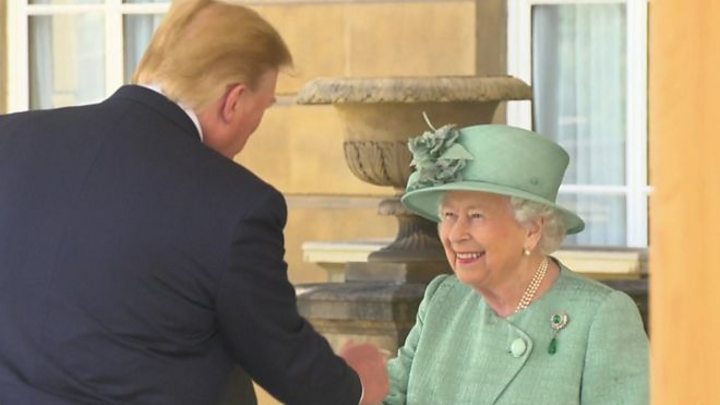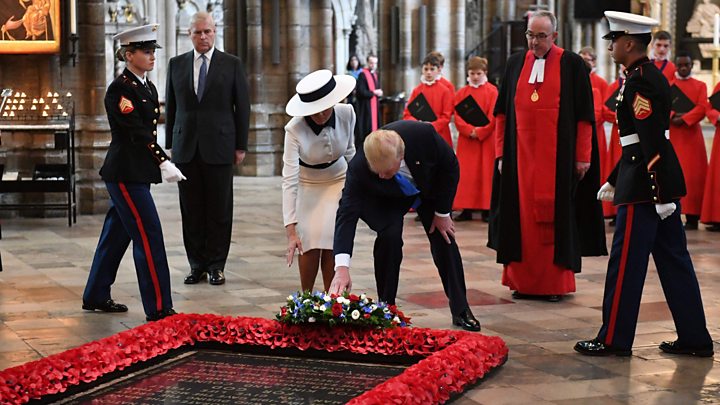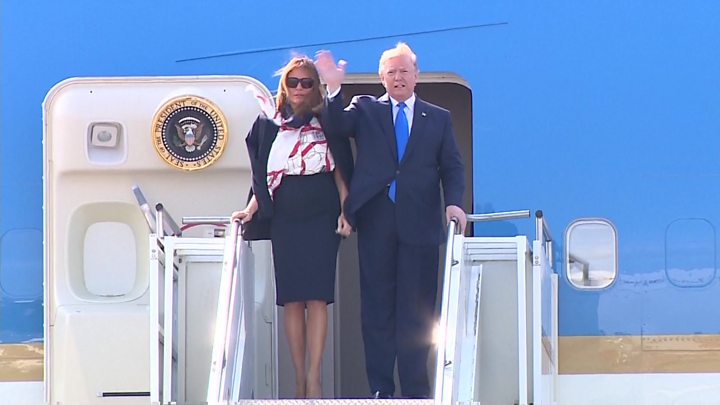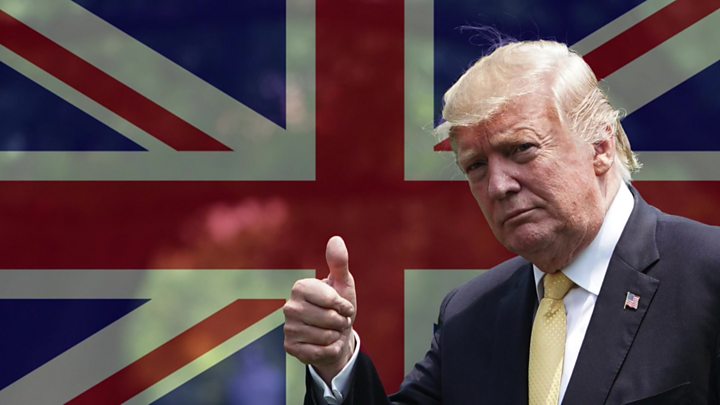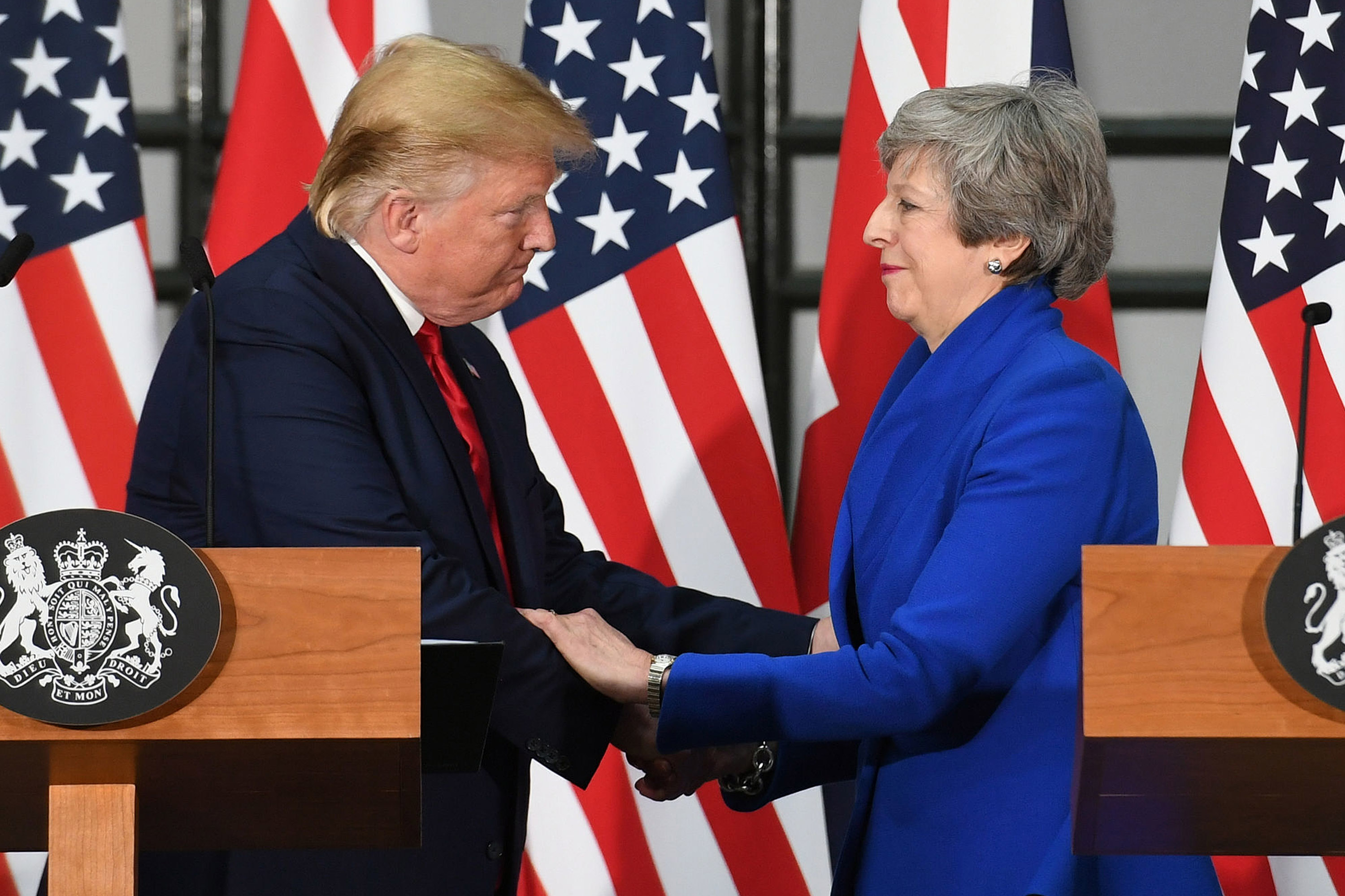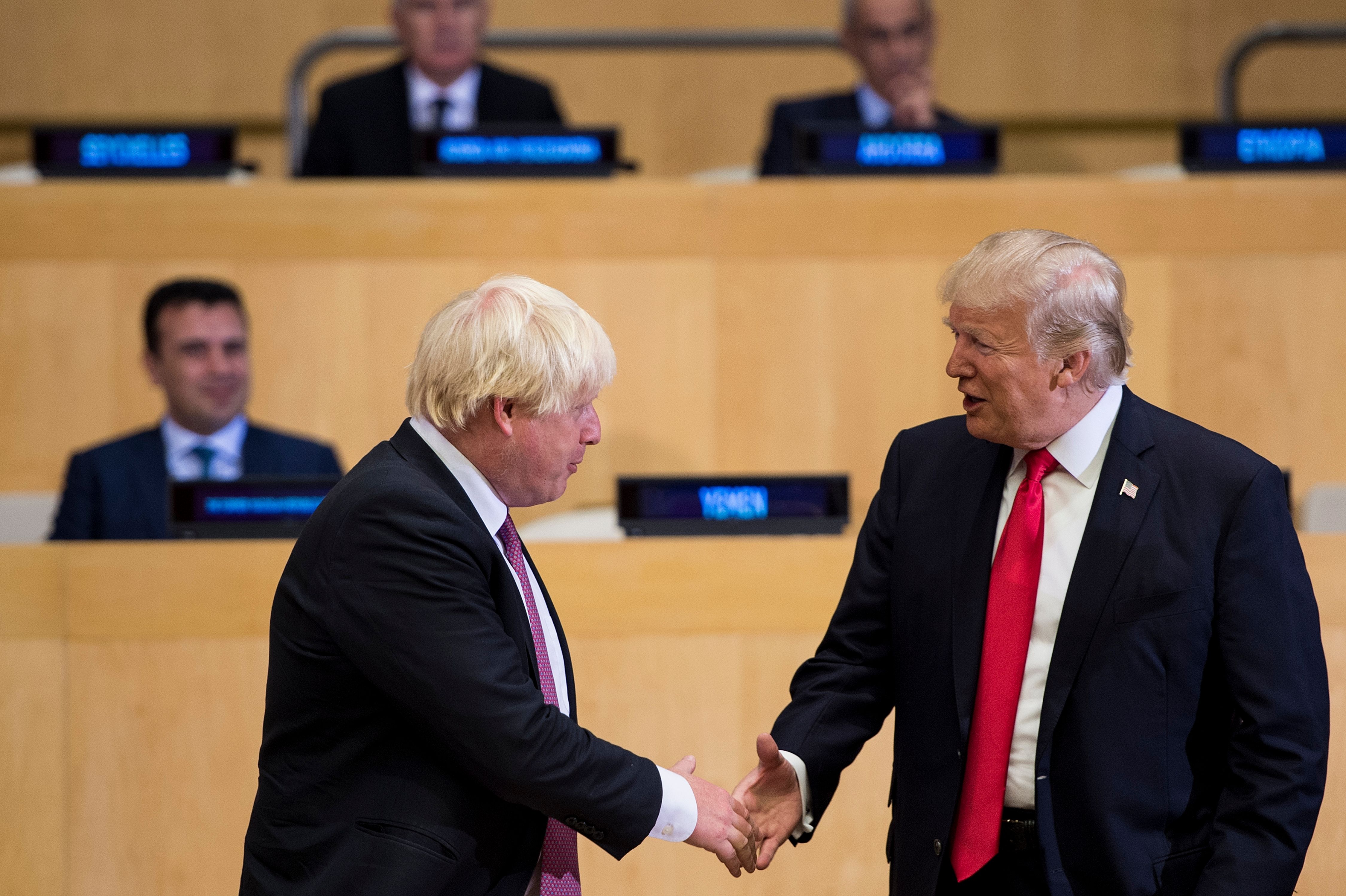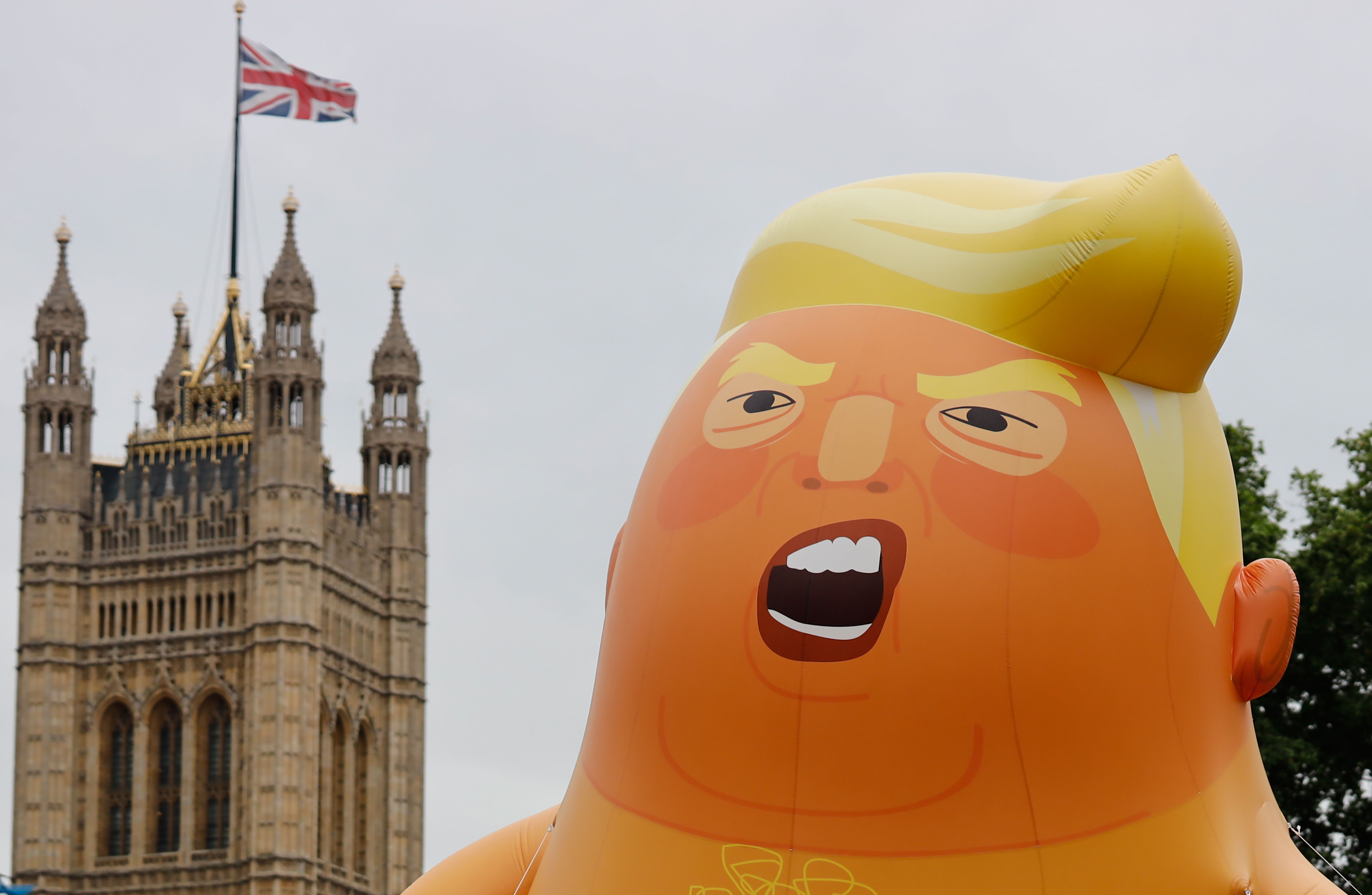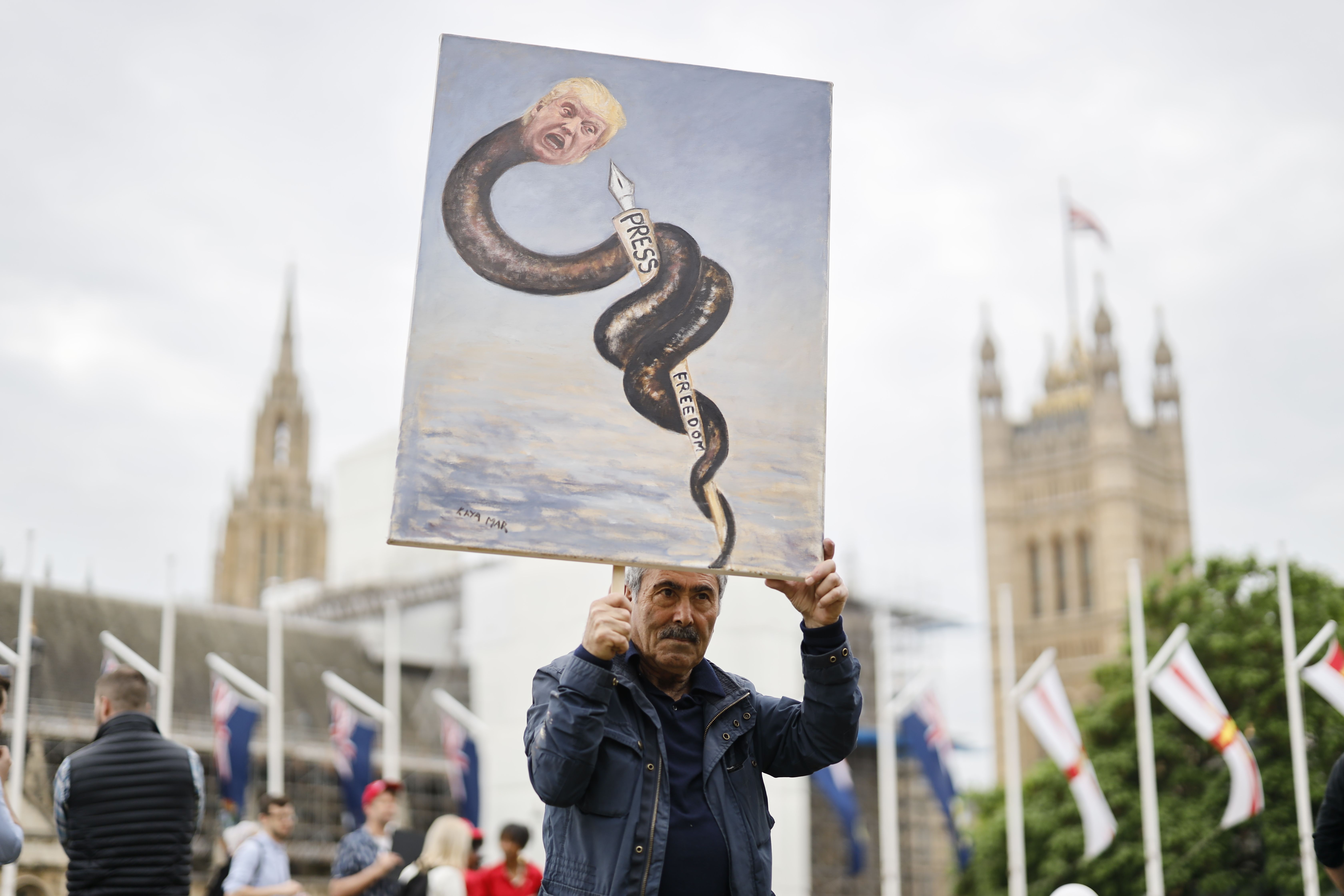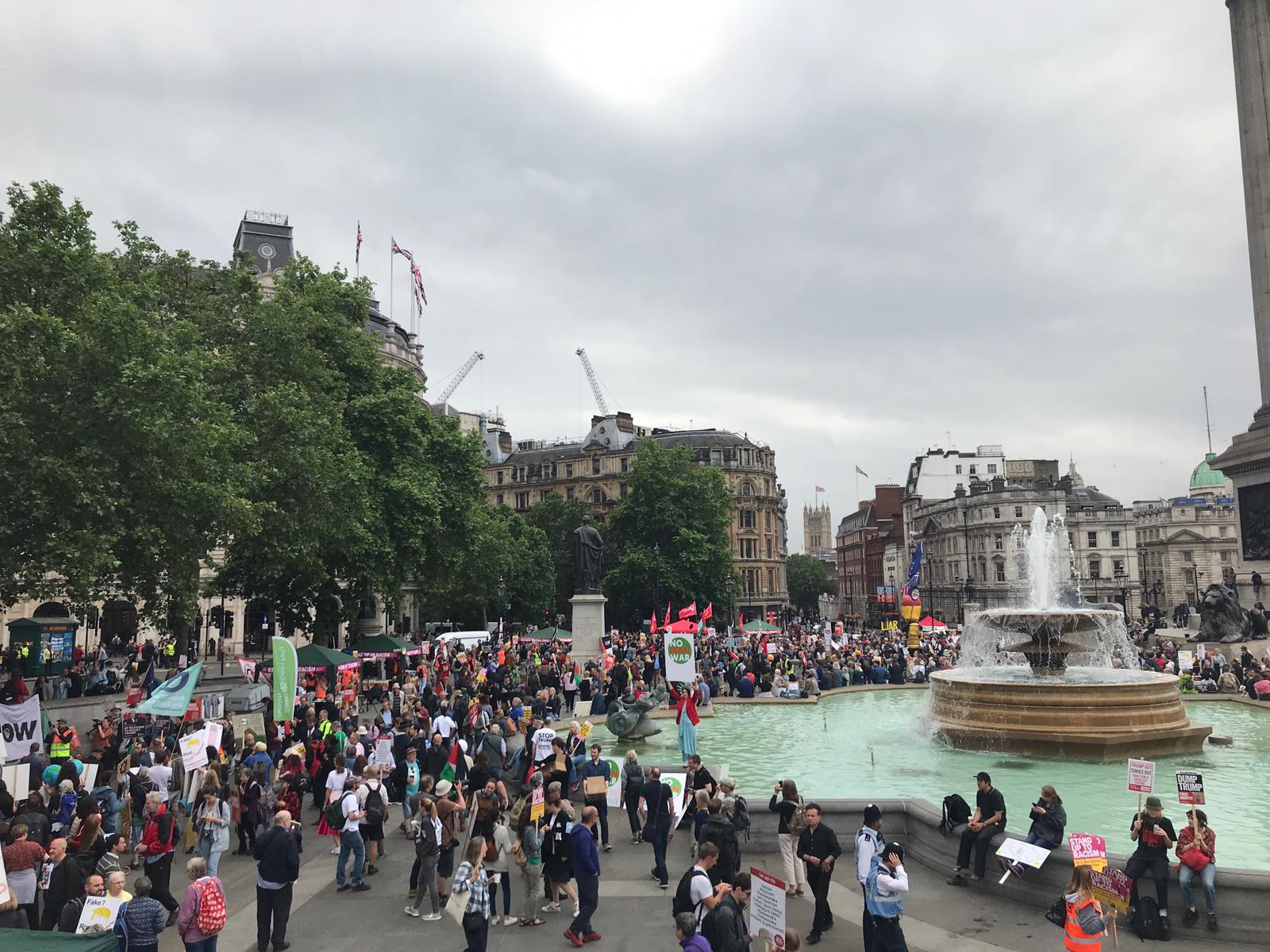
LONDON—President Trump pledged Tuesday to strike a “very, very substantial trade deal” with the U.K., a promise that nonetheless faces steep challenges in Britain, which is struggling to extricate itself from its decadeslong membership of the European Union.
Britain is hoping to use Mr. Trump’s state visit to lay the groundwork for a trade deal with the U.S., something supporters of Brexit dangle as a major incentive for leaving the EU. However, such an agreement could still take years to materialize and would face many hurdles.
If the U.K. decides to maintain close economic ties with the EU after it leaves the bloc, it would be restricted from striking free-trade deals with other countries, including the U.S. Any trade deal would have to be ratified by both Congress and the U.K.’s lawmakers, a process that could take years.
Prime Minister Theresa May has failed to reach an agreement on the terms of the U.K.’s split with the EU, a defeat that forced her to announce her resignation last month. On Friday, she is set to step down as party leader, opening a leadership contest that will deliver a new British prime minister.
“I don’t exactly know what your timing is but stick around, let’s do this deal,” Mr. Trump said at a roundtable with business leaders on Tuesday, the second day of his visit, prompting laughter by some of the participants.
“It will be a very fair deal and I think that this is something that your folks want to do, my folks want to do, we want to do and we’re going to get it done,” he said.
At a press conference alongside the U.K. prime minister, Mr. Trump added that such an agreement could double or triple U.S.-U.K. trade flows.
“Our economic relationship will only grow broader and deeper,” said Mrs. May.
The U.K.’s break from the EU, originally scheduled for March 29, has been delayed to Oct. 31. Mr. Trump has said the U.K. should cut ties with the EU so that it can quickly sign a deal with the U.S. instead. The U.K. government has warned that an abrupt break with the EU could damage the British economy.
Meanwhile, some fear the trade-offs that a deal with the U.S. could involve. British farmers worry the U.K. will be flooded by cheap U.S. imports, pushing them out of business.
Tuesday’s events took place against a backdrop of mass protests in central London against Mr. Trump’s visit.
The first day of the president’s state visit was mostly centered on ceremony, with Queen Elizabeth II welcoming the Trump family. Mr. Trump avoided any early morning controversy on his Twitter feed, posting only a brief video of highlights from events he attended in London on Monday.
In the run-up to the meeting, the president aired several of his more controversial views on British politics.
Mr. Trump has seemingly endorsed Boris Johnson—an advocate of a clean break with the EU and a rival to Mrs. May—to become the U.K.’s next prime minister and said the U.K. should crash out of the EU without a deal to smooth its exit.
Mr. Trump talked with Mr. Johnson for 20 minutes by phone Tuesday, according to a person close to the former U.K. foreign secretary.
Share Your Thoughts
How much of a priority should a trade deal with the U.K. be for President Trump? Join the conversation below.
During the press conference, Mr. Trump was asked about differences between the U.S. and the U.K. on whether to allow Huawei Technologies Co. to build a 5G network in the U.K. The U.S. argues that Huawei is a security risk and has urged its allies to repudiate the Chinese telecom-equipment giant.
However, the U.K., while worried about alienating a potential trade partner, is considering allowing Huawei to build part of its 5G network.
Mr. Trump said that London and Washington will “be able to work out any difference,” but provided no further specifics.
On Monday, Queen Elizabeth delivered a speech at Buckingham Palace that alluded to a deeper aim of the visit: persuade Mr. Trump to protect the world order that the two countries built after World War II.
Mr. Trump has been critical of both the United Nations and North Atlantic Treaty Organization, two institutions the countries helped forge. “While the world has changed, we are forever mindful of the original purpose of these structures: nations working together to safeguard a hard-won peace,” the queen said in her speech during the state banquet.
Newsletter Sign-up
To cement the message, Mrs. May is set to present Mr. Trump with Winston Churchill’s personal draft of the Atlantic Charter, a foundational text of the U.N., as a gift.
Some in Parliament criticized the rush to sign a deal with the U.S. “The government must ask itself one simple question: Is such a negligible increase [in U.K. gross domestic product] really worth putting so many areas of the U.K. economy on the table for?” said Angus Brendan MacNeil, the chair of the International Trade Committee.
Large-scale protests occurred throughout the day. A giant balloon in the shape of a diaper-wearing baby with Mr. Trump’s face floated in central London. An image of Mr. Trump’s low approval ratings in the U.K. was projected onto the Tower of London.
Shelley Harris, a 52-year-old novelist and university lecturer who joined the protest, brandished a sign that said, “I bite my thumb at thee,” alongside a photo of Shakespeare, a reference to a line in “Romeo and Juliet.”
“I thought I would give him a particularly British welcome,” she said.
Jeremy Corbyn, the leader of Britain’s opposition Labour Party, criticized Mr. Trump during an address to crowds outside Parliament, many of whom disagree with Mr. Trump’s views on immigration and climate change and feel he shouldn’t have been welcomed by the queen.
“It just makes me so uncomfortable,” said Bryny Doyle, 23 years old, as she stood in a square outside Parliament. “He doesn’t deserve to be here.”
Mr. Trump said the he hadn’t seen any of the protests during his visit, branding reports of them as “fake news.” He described Mr. Corbyn as “a negative force.”
—Brittany Bernstein and Jason Douglas contributed to this article.
Write to Max Colchester at max.colchester@wsj.com and Michael C. Bender at Mike.Bender@wsj.com
https://www.wsj.com/articles/after-royal-welcome-trump-and-may-to-turn-toward-thorny-trade-issues-11559645704
2019-06-04 14:46:00Z
52780308436784
